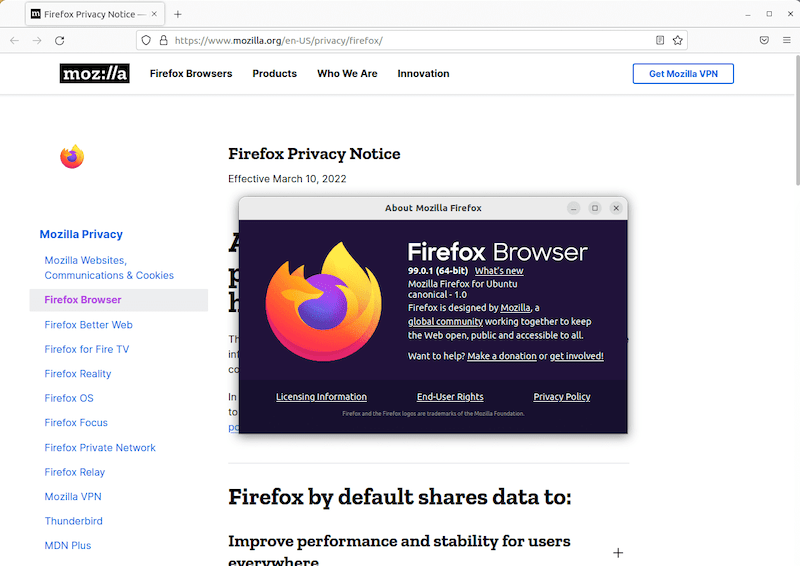How To Install Firefox on Manjaro

In this tutorial, we will show you how to install Firefox on Manjaro. Manjaro Linux stands as a testament to the power and flexibility of open-source operating systems. If you’ve chosen Manjaro as your preferred Linux distribution and are ready to elevate your browsing experience, installing Firefox via the command line is a seamless process that offers both efficiency and control.
This article assumes you have at least basic knowledge of Linux, know how to use the shell, and most importantly, you host your site on your own VPS. The installation is quite simple and assumes you are running in the root account, if not you may need to add ‘sudo‘ to the commands to get root privileges. I will show you the step-by-step installation of the Firefox browser on a Manjaro Linux.
Prerequisites
- A server or desktop running one of the following operating systems: Manjaro, and other Arch-based distributions.
- It’s recommended that you use a fresh OS install to prevent any potential issues.
- SSH access to the server (or just open Terminal if you’re on a desktop).
- A stable internet connection is crucial for downloading and installing packages. Verify your connection before proceeding.
- A
non-root sudo useror access to theroot user. We recommend acting as anon-root sudo user, however, as you can harm your system if you’re not careful when acting as the root.
Install Firefox on Manjaro
Step 1. Before embarking on the Firefox installation journey, ensure your Manjaro system is up-to-date by executing the following command:
sudo pacman -Syu sudo pacman -S base-devel
This ensures that your package database is current, mitigating potential conflicts during installation. Additionally, a stable internet connection and access to the terminal are essential for a smooth process.
Step 2. Installing Firefox on Manjaro.
- Method 1: Using the Package Manager
Once the package list is updated, you can install Firefox using the following command:
sudo pacman -S firefox
This command will prompt you to enter your password and then proceed to install Firefox along with any necessary dependencies.
Confirm the successful installation by checking the Firefox version:
firefox --version
- Method 2: Downloading from the Official Website
Open a web browser and go to the official Firefox website. On the Firefox website, click on the “Download Firefox” button. This will automatically detect your operating system and offer you the appropriate download for Linux.
Once the download is complete, navigate to the directory where the file was downloaded (usually the Downloads folder) and extract the archive using the following command in the terminal:
tar xvf firefox-*.tar.bz2
After extracting the archive, move the Firefox directory to the /opt directory using the following command:
sudo mv firefox /opt/
To make Firefox accessible system-wide, create a symbolic link to the Firefox executable using the following command:
sudo ln -s /opt/firefox/firefox /usr/bin/firefox
Step 3. Accessing Firefox Browser on Manjaro.
After the installation is complete, you can verify that Firefox has been installed by launching it from the application menu or by running the following command in the terminal:
firefox

Congratulations! You have successfully installed Firefox. Thanks for using this tutorial to install the latest version of the Firefox browser on the Manjaro system. For additional help or useful information, we recommend you check the official Firefox website.